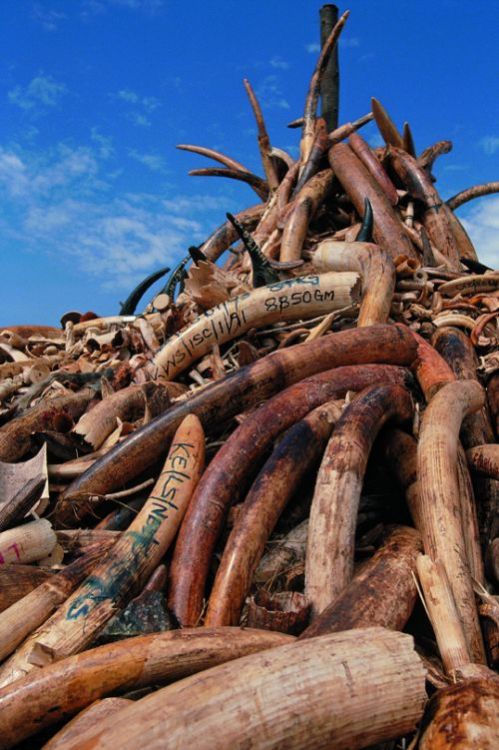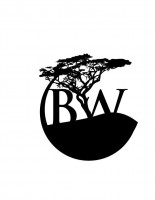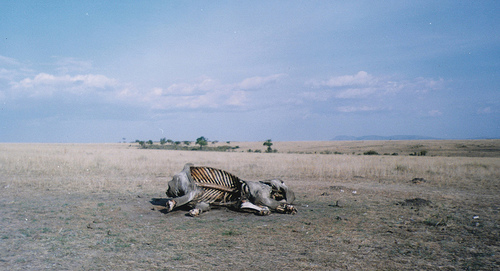As the demand for ivory continues to rise in Asia, more and more African elephants are feeling the repercussions. A single large elephant tusk can now go for as much as $17,000 on the black market and with that kind of money involved there is no shortage of people willing to sell them illicitly. Sierra Leone & Burundi no longer have any elephants inside their borders, and Senegal now has less than ten. Samuel K. Wasser, director of the Center for Conservation Biology at the University of Washington has estimated the value of the illegal ivory trade at $264 million dollars over the past decade and warns that: “If we don’t get the illegal trade under control soon, elephants could be wiped out over much of Africa.”
Two tons of ivory seized in Bangkok that was being transported from Africa.

The primary destinations for illegal ivory have traditionally been Thailand, Japan and China, which have thriving black markets and some of the world’s best ivory carvers. However police forces throughout these nations have begun cracking down on the lucrative trade. Thailand had three seizures last year and already had its biggest yet in February, when 2 tons of African tusks worth $3.6 million were found in containers bound for Laos. In the Chinese city of Putian, where ivory demand is high a dealer by the name of Chen shows how difficult it is to control the ivory trade. Chinese police started cracking down on ivory theft in February. Since the raids, Chen said he has stopped selling the “xiang ya,” the Chinese word for ivory, which translates to “elephant tooth.” But not for long. “I don’t dare sell anything now because they’re cracking down,” he said, over the din of electric saws being used to carve wooden dragon statues. “Come back in early June and I should be able to sell.”

While governments insist their cracking down on the trade, officials admit corruption is rife within their ranks, which remains a huge challenge in the war on ivory. Lt. Col. Adtapon Sudsai, who investigates the illegal trade in Thailand, said it is not unusual to find ivory carvings in Buddhist temples or the homes of politicians or high-ranking police and military officers as a sign of power.
A pile of illegally obtained elephant tusks.

To read the full article click here

